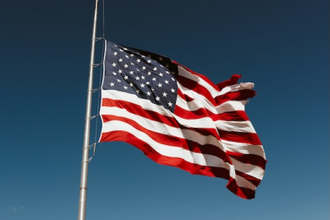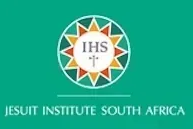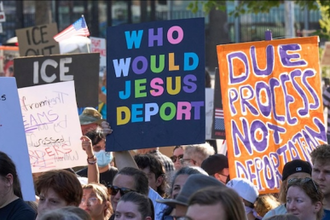US Catholic bishops, faith leaders protest Trump's Budget Bill

Photo by Paul Weaver on Unsplash
Source: Vatican Media, USCCB, ICN
Following the passage of the 'One Big Beautiful Bill Act' by the US Congress today, the President of the US Conference of Catholic Bishops (USCCB) have expressed serious concerns about its impact on the poor and vulnerable.
Reacting to the final passage of the Act by the United States Congress, Archbishop Timothy Broglio, said the ruling would have harmful consequences for the most vulnerable members of society.
The sweeping legislation, passed on a largely party-line vote after weeks of negotiation, is aimed at overhauling the federal budget for the coming fiscal year. Promoted by its supporters as a comprehensive measure to stimulate economic growth and reduce bureaucratic inefficiencies, the bill includes significant tax changes, reforms to social programs, and shifts in federal funding priorities. Lawmakers who backed the bill said it would streamline government spending and promote job creation through reduced regulation and expanded investment incentives.
But Catholic leaders have raised alarm over the consequences of key provisions in the final version of the bill. In a statement released shortly after its passage, Archbishop Broglio lamented significant changes that, in his view, undermine efforts to protect human dignity and promote the common good.
In his statement, Archbishop Broglio said: "My brother bishops and I have repeatedly and consistently urged lawmakers to use the budget reconciliation process to help families in need and to change course on aspects of the bill that fail the poor and vulnerable."
The archbishop pointed in particular to "unconscionable cuts to healthcare and food assistance, tax cuts that increase inequality, immigration provisions that harm families and children, and cuts to programs that protect God's creation."
Earlier drafts of the legislation had included provisions that were welcomed by the bishops, such as stricter limitations on federal funding for abortion providers, greater parental choice in education, and restrictions on federal support for gender-transition procedures. However, in the version passed by Congress, many of these measures were either weakened or removed entirely.
According to the USCCB, the restriction on federal funding to organisations such as Planned Parenthood was shortened to one year. The education component, which initially promised broader parental choice in schooling, was significantly scaled back. Furthermore, the restriction on federal funds being used for gender-transition procedures was omitted altogether from the final text.
Archbishop Broglio warned of the real-life consequences these decisions will bring: "As its provisions go into effect, people will lose access to healthcare and struggle to buy groceries, family members will be separated, and vulnerable communities will be less prepared to cope with environmental impacts of pollution and extreme weather."
"More must be done to prevent these devastating effects," he said.
The USCCB president called on Catholics and all people of goodwill to intensify efforts to assist those who are now at greater risk.
"The Catholic Church's teaching to uphold human dignity and the common good compels us to redouble our efforts and offer concrete help to those who will be in greater need," he said, adding that the bishops will "continue to advocate for legislative efforts that will provide better possibilities in the future for those in need."
Last Thursday, dozens of Catholic leaders together with other faith leaders wrote the following appeal to Senators ahead of the vote.
We, the undersigned faith leaders, write to ask for your opposition to HR 1, the budget reconciliation legislation currently being considered by the US Senate. We believe that the changes made by the US Senate to the legislation are insufficient and do not significantly mitigate its adverse effects.
First, it provides tens of billions of dollars to the government to undertake a mass deportation campaign which will separate US families, harm US-citizen and immigrant children, and sow chaos in local communities. It will spur immigration raids across the nation, harming hard-working immigrant families essential to our economy and causing widespread unrest like we recently witnessed in Los Angeles.
This funding also will be used to target faith communities, as the Department of Homeland Security (DHS) has removed places of worship from its sensitive locations list, allowing ICE agents to enter them for enforcement purposes. We have already witnessed a reduction in attendance at many of our religious services in our denominations, as the threat of enforcement has deterred many families from practicing their faith.
Moreover, the bill provides funding for a border wall along the US-Mexico border which we believe will drive migrants into the most remote regions of the border and lead to an increase in migrant deaths. It also would hurt the local environment along the border and force desperate asylum-seekers seeking safety to increasingly rely on human smugglers.
As you should know, our faith organizations have long favored the creation of legal avenues for migration and a legalization program for immigrants who have lived in the US for years and contributed their hard work to our economy. We believe the adoption of these policies, instead of the implementation of a mass deportation campaign, would not only benefit immigrant workers and their families, but be in the best interest of our nation.
Second, the legislation makes severe cuts in health-care coverage and food assistance to millions of both low-income citizens and legal residents, including asylum-seekers and refugees, driving them deeper into poverty. According to the nonpartisan Congressional Budget Office (CBO), the bill transfers wealth from those in the bottom 10 percent of income to those in the top 10 percent of income in our nation, increasing the already large gap between the rich and the poor.
From our various faith perspectives, the moral test of a nation is how it treats those most in need of support. In our view, this legislation will harm the poor and vulnerable in our nation, to the detriment of the common good. Its passage would be a moral failure for American society as a whole.
We respectfully ask you to vote "no" on the budget reconciliation legislation, HR 1.
Sincerely,
His Eminence Cardinal Robert W. McElroy, Archbishop of Washington DC
His Eminence Cardinal Joseph William Tobin, CSsR, Archbishop of Newark
Imam Jamal Rahman
Rabbi Daniel Weiner
The Rt. Reverend Philip N. LaBelle Bishop
Reverend Douglas Avilesbernal
Presiding Elder Spencer Francis Barrett
Rabbi Sarah Bassin, Hebrew Immigrant Aid Society (Rabbi-in-residence)
Most Reverend Ramon Bejarano, Auxiliary Bishop of San Diego, California
Most Reverend Steven Biegler, Bishop of Cheyenne, Wyoming
Most Reverend Roy E. Campbell, Jr., Auxiliary Bishop of Washington, DC
Most Reverend Anthony C. Celino, Auxiliary Bishop of El Paso, Texas
The Rt. Reverend Angela M. Cortiñas, VII Bishop Suffragan of the Episcopal Diocese of West Texas
Most Reverend Nicholas DiMarzio, Bishop Emeritus of Brooklyn, New York
Most Reverend John P. Dolan, Bishop of Phoenix, Arizona
Most Reverend Eusebio L. Elizondo, MSpS, Auxiliary Bishop of Seattle, Washington
Most Reverend Paul D. Etienne, Archbishop of Seattle, Washington
Reverend Dr. SanDawna Gaulman Ashley, Synod of the Northeast, Presbyterian Church (U.S.A.).
Imam Taha Hassane, Islamic Center of San Diego, California
Reverend Lynne Hinton, Conference Director, New Mexico Conference of Churches
Bishop Richard Jaech, Southwestern Washington Synod - Evangelical Lutheran Church in America
Most Reverend Joseph R. Kopeck, Bishop of Jackson, Mississippi
Bishop Dave Nagler, Pacifica Synod - ELCA
Most Reverend Michael Pham, Bishop-elect of San Diego, California
Most Reverend Felipe Pulido, Auxiliary Bishop of San Diego, California
The Rt. Reverend Jennifer A. Reddall, VI Bishop of the Episcopal Diocese of Arizona
Ruling Elder Conrad M. Rocha, Synod of the Southwest (PCUSA)
Most Reverend Mitchell Thomas Rozanski, Archbishop of St. Louis, Missouri
Reverend Dr. Gabriel Salguero,Pastor, The Gathering Place and President, National Latino Evangelical Coalition, Orlando, Florida
Most Reverend Frank Schuster, Auxiliary Bishop of Seattle, Washington
The Rt. Reverend Susan Brown Snook, Bishop, Episcopal Diocese of San Diego
Most Reverend Jaime Soto, Bishop of Sacramento, California
Most Reverend John Stowe, OFM Conv., Bishop of Lexington, Kentucky
Most Reverend Joseph J. Tyson, Bishop of Yakima, Washington
Bishop Shelley Bryan Wee, Northwest Washington Synod, ELCA
Most Reverend Edward J. Weisenberger, Archbishop of Detroit, Michigan
Most Reverend John C. Wester, Archbishop of Santa Fe, New Mexico
Institute Leadership Team,Sisters of Mercy of the Americas:
Sister Susan M. Sanders, RSM, President
Sister Teresa Bednarz, RSM
Sister Patricia C. Flynn, RSM
Sister Judith Frikker, RSM
Sister Maureen King RSM


















